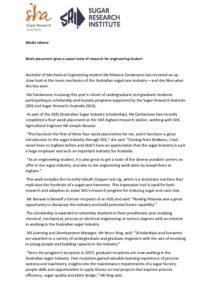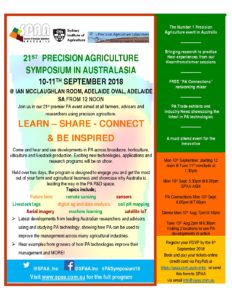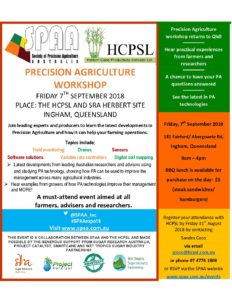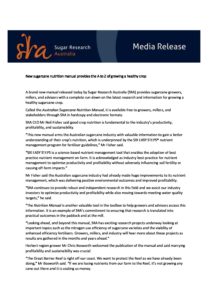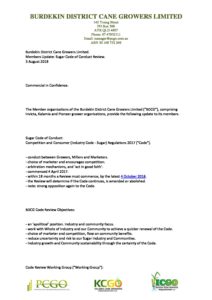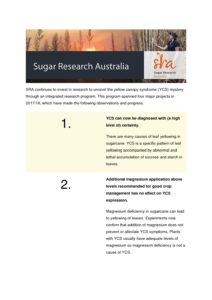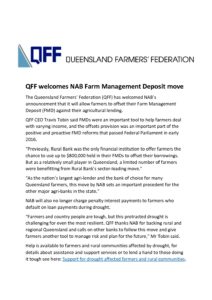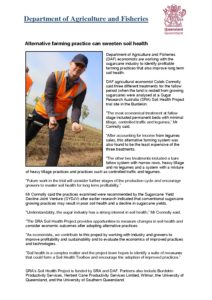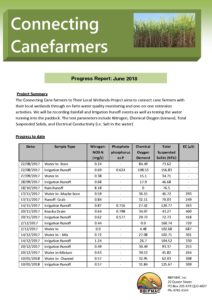Category: Industry Information
Miscellaneous information
SPAA – PRECISION AGRICULTURE SYMPOSIUM IN AUSTRALASIA
SPAA – Precision Agriculture Workshop – Ingham
SRA – Media Release
BDCG Grower Update – Code of Conduct
SRA – Yellow Canopy Syndrome Update
QFF – Media Release
DAF Soil Health Research Article
NQ Agricultural Market & Supply Chain Study
TOWNSVILLE ENTERPRISE LIMITED (TEL) – NQ AGRICULTURAL MARKET & SUPPLY CHAIN STUDY
Interesting study being undertaken by TEL and North Qld Regional Organisation of Councils of agriculture potential in NQ to meet international market demands. May be opportunity in future alternate cropping for sugar cane growers when consultants reports/findings are handed down within the next 12 months. Link to study is attached for members information.
Les Elphinstone
Manager KCGOL
Connecting Canefarmers
Connecting Canefarmers
BBIFMAC are currently undertaking trials on a number of farms in the Lillesmere Lagoon Region to determine water quality and nitrogen runoff under their “Connecting Cane Farmers To Local Wetlands Project”. The aspect of water quality was the subject of much discussion at recent KCGOL AGM. A member participating in trial has provided progress report in relation to his farm results and impact on Lillesmere Lagoon for growers who may be interested.
Report is attached.
Les Elphinstone
KCGOL Manager
(click to view full size)
